10 Emerging-Markets Stocks That Will Survive the Trade War
The old saying goes: When America sneezes, the world catches a cold.

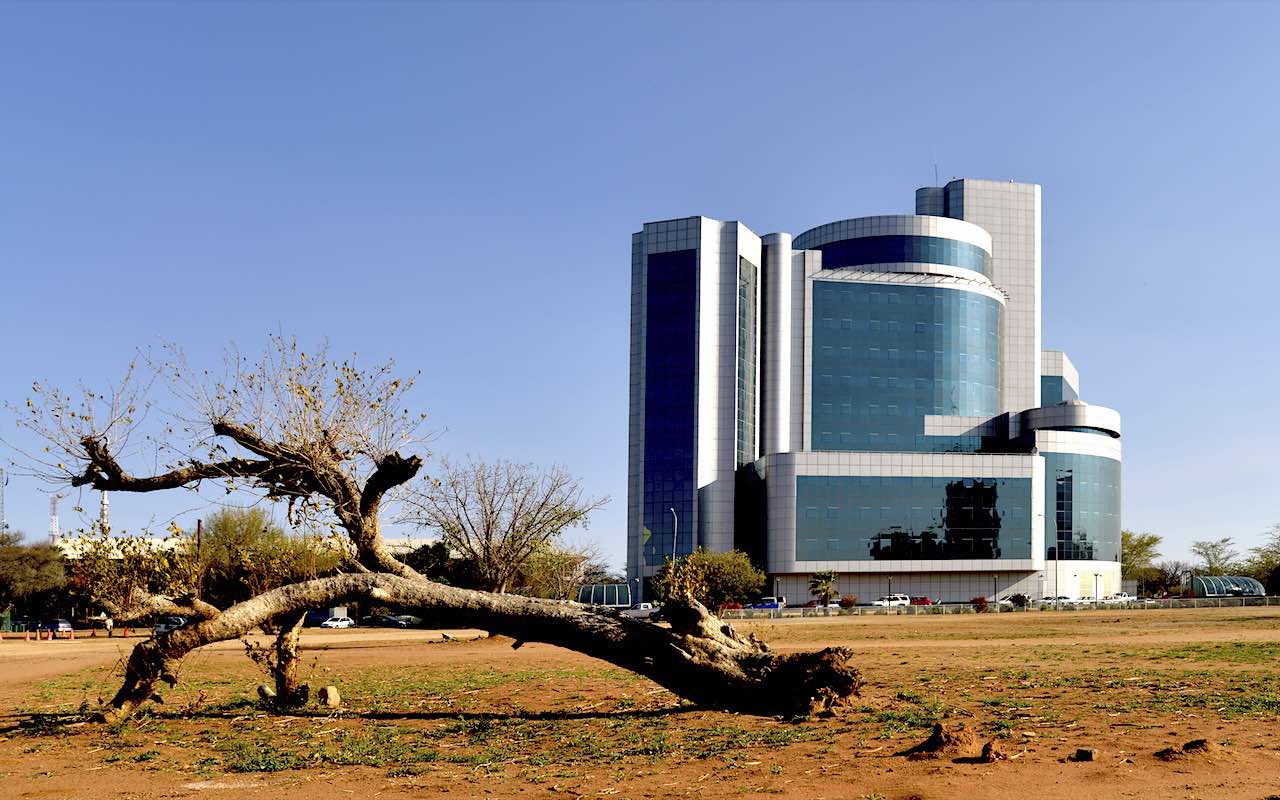
Profit and prosper with the best of Kiplinger's advice on investing, taxes, retirement, personal finance and much more. Delivered daily. Enter your email in the box and click Sign Me Up.
You are now subscribed
Your newsletter sign-up was successful
Want to add more newsletters?

Delivered daily
Kiplinger Today
Profit and prosper with the best of Kiplinger's advice on investing, taxes, retirement, personal finance and much more delivered daily. Smart money moves start here.

Sent five days a week
Kiplinger A Step Ahead
Get practical help to make better financial decisions in your everyday life, from spending to savings on top deals.

Delivered daily
Kiplinger Closing Bell
Get today's biggest financial and investing headlines delivered to your inbox every day the U.S. stock market is open.

Sent twice a week
Kiplinger Adviser Intel
Financial pros across the country share best practices and fresh tactics to preserve and grow your wealth.

Delivered weekly
Kiplinger Tax Tips
Trim your federal and state tax bills with practical tax-planning and tax-cutting strategies.

Sent twice a week
Kiplinger Retirement Tips
Your twice-a-week guide to planning and enjoying a financially secure and richly rewarding retirement

Sent bimonthly.
Kiplinger Adviser Angle
Insights for advisers, wealth managers and other financial professionals.

Sent twice a week
Kiplinger Investing Weekly
Your twice-a-week roundup of promising stocks, funds, companies and industries you should consider, ones you should avoid, and why.

Sent weekly for six weeks
Kiplinger Invest for Retirement
Your step-by-step six-part series on how to invest for retirement, from devising a successful strategy to exactly which investments to choose.
The old saying goes: When America sneezes, the world catches a cold. As the world’s largest importer – and holder of its largest trade deficit by a country mile – the United States is the planet’s indispensable economy. And emerging-markets stocks, with their dependence on foreign capital and high concentration in cyclical and commodity sectors, are particularly vulnerable to weakness in the U.S.
There’s nothing quite like a good trade war to give investors the jitters. But it’s not just the ongoing spat between Presidents Donald Trump and Xi Jinping that has investors unnerved. U.S. economic growth appears to be topping out for this cycle, and issues in the American market have a way of spilling across borders.
When western investors go into de-risking mode, they tend to throw out the baby with the bathwater, dumping high-quality emerging-markets stocks in a flight to cash. But in doing so, they often create fantastic buying opportunities.
Jeremy Grantham and his colleagues at Boston-based asset manager GMO are not known for being wide-eyed Pollyannas. They’re sober value investors best known for calling the last two major bear markets in 2000 and 2008. Perhaps not surprisingly, Grantham & Co. see U.S. stocks performing poorly over the next seven years, losing 3.7% per year. But interestingly, GMO expects emerging-markets stocks to return 5.2% per year over the next seven years. Even more interestingly, they see EM value stocks returning 9.8% per year.
Today, we’re going to look at 10 strong emerging-markets stocks that might give you a bit of heartburn, but ultimately should weather the trade war and reward new money. Most depend heavily on domestic EM consumers rather than on exports or trade flows, and all should be considered potential buys on any weakness in the coming months.
Data is as of Sept. 3.

Tencent Holdings
- Country: China
- Market value: $398.4 billion
We’ll start with Tencent Holdings (TCEHY, $42.33), one of China’s leading technology conglomerates and, at nearly $400 billion, one of the largest emerging-markets stocks you can buy.
Tencent is a little hard to define and has no exact Western equivalent. It’s part-Facebook (FB), part-PayPal (PYPL), and part-Netflix (NFLX) with elements of Alphabet (GOOGL) and Activision Blizzard (ATVI) sprinkled in. You can consider Tencent a one-stop shop for all things related to Chinese mobile services.
Its most important product is the mobile chatting app WeChat, which is similar to Facebook’s WhatsApp (though light-years ahead of it in terms of features). In addition to the chat, audio phone calls and video conferencing you might expect from such an app, WeChat also is a leader in mobile payments via WeChat Pay and serves as an e-commerce platform.
Importantly, Tencent has sparse exposure to trade-war risk. A deep recession in China could mean lower transaction-based revenues for WeChat Pay. But most of Tencent’s revenues come from “disposable luxuries” such as smartphone games. Interestingly, while people might cut back on things such as big vacations and expensive dinners if the economy hits the skids, they tend to hang on more tightly to small, disposable luxuries. The somewhat addictive nature of video games even resembles another pair of consumer goods that do well in recessions: tobacco and alcohol.
Tencent is down about 30% from its old 2017 highs. There’s no guarantee it resumes an uptrend tomorrow, but it’s certainly a stock to buy on dips.
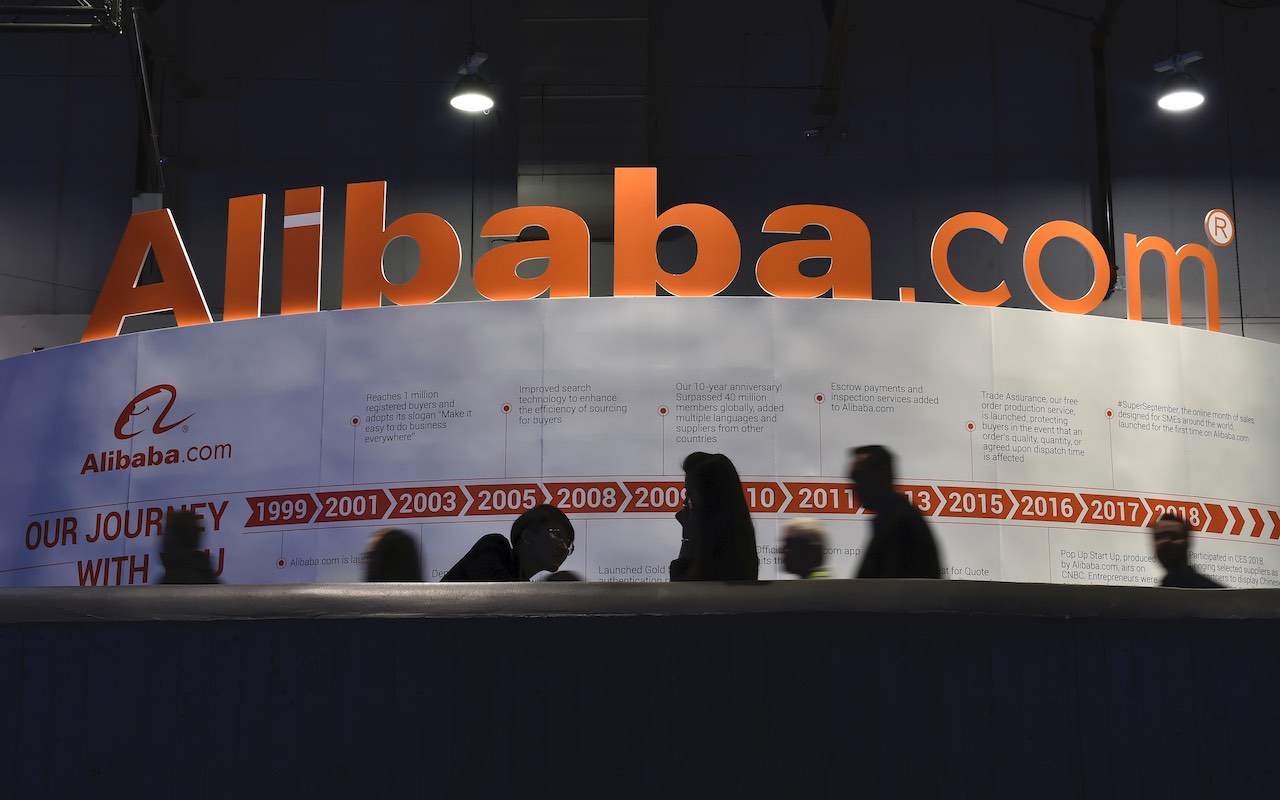
Alibaba Group
- Country: China
- Market value: $429.5 billion
- Alibaba Group (BABA, $172.41), the creation of billionaire Jack Ma, is another Chinese tech company that is a little hard to define. It’s popularly thought of as China’s equivalent of Amazon.com (AMZN), especially given its sheer size and status as an innovator. But it functions more like eBay (EBAY), serving as a middleman between buyers and sellers online.
Interestingly, its business model also has shades of Alphabet’s Google, as sellers pay to be ranked in the company’s search engine.
A recession would potentially hurt all retail companies, even innovators such as Alibaba. Lower spending is lower spending. But it’s during difficult times that great innovators really get to show what they’re made of.
And importantly, Alibaba is a domestic play on the Chinese consumer that should be somewhat insulated from the trade war. “If U.S. goods become too expensive due to tariffs, Chinese consumers can shift to domestic producers or imports from other parts of the world,” Joseph Tsai, Alibaba executive vice chairman, said earlier this year. “In terms of our international expansion, the world is a big place.”
At current prices, Alibaba shares are 17% below their old 2018 highs.
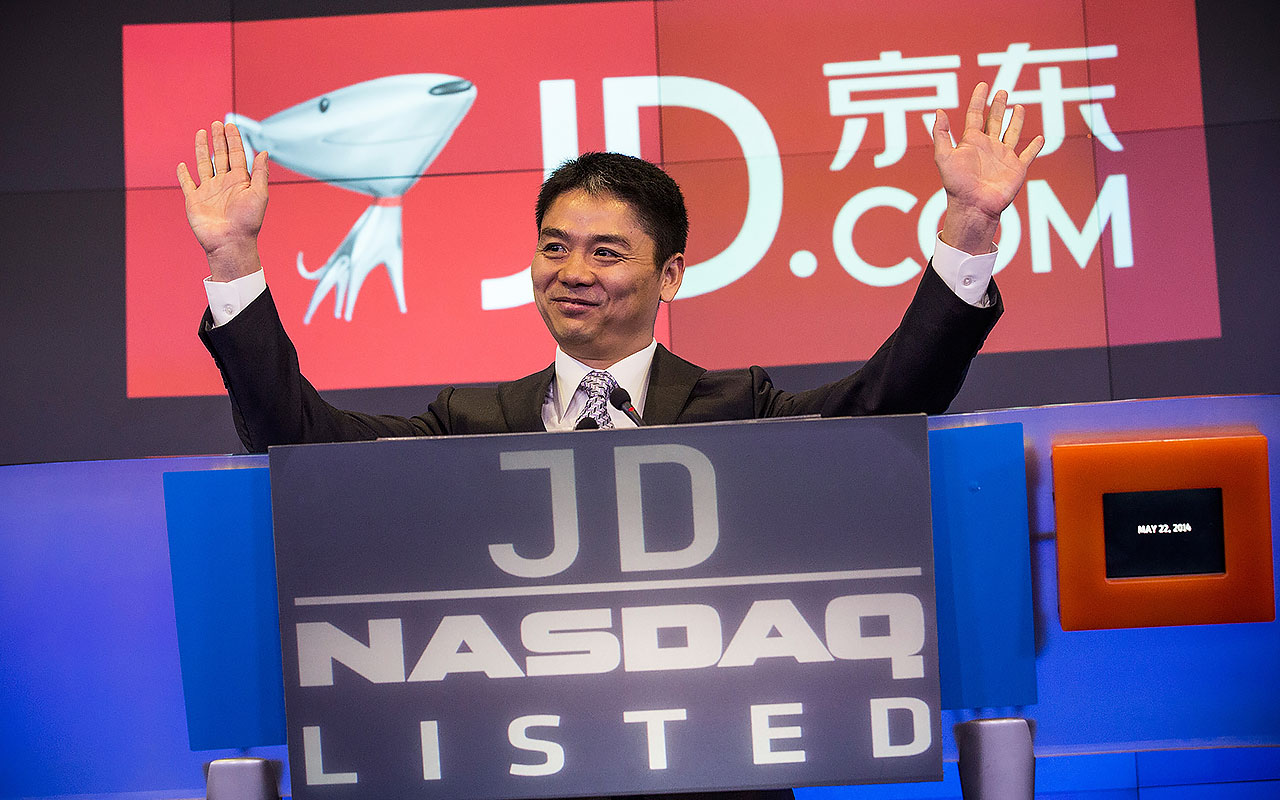
JD.com
- Country: China
- Market value: $43.0 billion
We’ll add another Chinese retailer to the list: JD.com (JD, $29.45).
JD.com’s model most closely resembles that of Amazon.com in that it is primarily an online business-to-consumer retailer. Interestingly, JD.com collaborates with Amazon’s archrival Walmart (WMT) in a number of overlapping partnerships. Walmart sold its Chinese e-commerce business to JD.com in 2016 in exchange for equity in the company. And last year, Walmart and JD.com invested $500 million together in online grocery delivery company Dada-JD Daojia.
JD.com’s corporate ties don’t end there. JD also actively partners with fellow Chinese internet giant Tencent, which holds a 20% stake in the e-tailer.
JD shares have taken a pounding of late and now trade at more than 40% below their old 2018 highs, at prices first seen in 2014. And a hard landing in China would likely mean more short-term downside to JD.com (not to mention other emerging-markets stocks).
But if you believe in JD.com’s staying power as a leading Chinese e-retailer, then buying any dips makes sense.
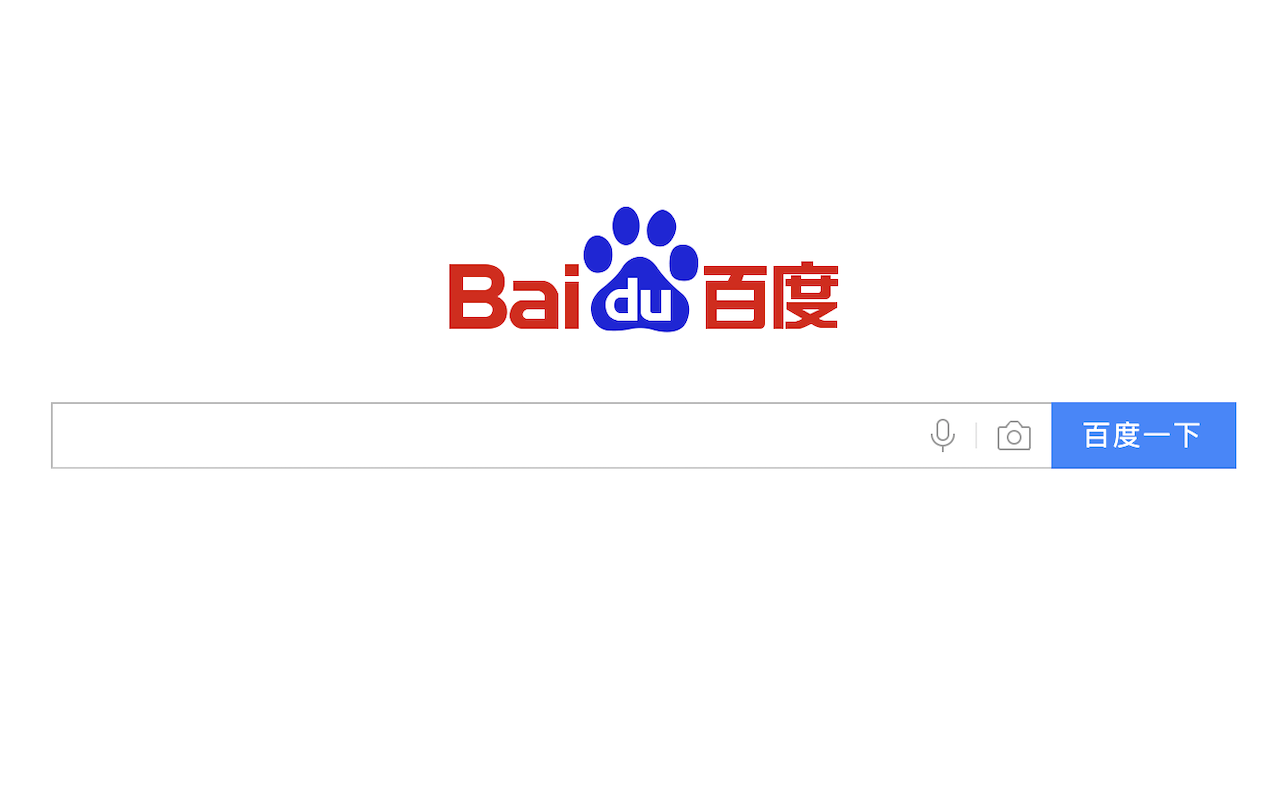
Baidu
- Country: China
- Market value: $35.7 billion
While not all emerging-markets tech stocks have obvious Western equivalents, Chinese search leader Baidu (BIDU, $102.56) certainly does. The Baidu search engine is essentially China’s Google.
But beyond this core business, Baidu also has a successful smart speaker business and a video streaming service, and it’s a leader in driverless car technology.
So far, Baidu has proven to be a lot more vulnerable to an economic slowdown than its peers. Baidu gets the vast majority of its earnings from online advertising, and corporate advertisers have been scaling back. Baidu’s revenues are expected to be flat or slightly down this year.
Baidu’s shares have been in a tailspin so far throughout the trade war, dropping nearly 60% since last July. Thus, buying right this second is attempting to catch that proverbial falling knife.
All the same, BIDU stock trades for a meager eight times trailing earnings. So it might be worth taking a small position once the stock stabilizes, then averaging in over the coming months.

Yum China Holdings
- Country: China
- Market value: $16.4 billion
Let’s take a look at one last Chinese stock: Yum China Holdings (YUMC, $43.64).
Yum China is, as it sounds, the Chinese spinoff of America’s Yum Brands (YUM), and it owns, operates and franchises KFC, Pizza Hut and Taco Bell restaurants in China. The company also controls the Little Sheep hot pot restaurant chain, the East Dawning Chinese fast-food chain, and the COFFii & JOY coffee chain.
Fast-food restaurants have a different clientele in China; they are more of a middle-class destination than a working-class one. And a deep recession in China could prompt more Chinese diners to eat at home. But fast food has proven to be recession-resistant in the developed world, and it’s not unreasonable to expect Yum China to emerge from the trade war fully intact.
Yum China’s stock price has traded sideways for most of the past two years. The shares, while not necessarily dirt-cheap, certainly are not expensive for a fast-food conglomerate with a collection of some of the most recognized brands in the world.

Grupo Televisa
- Country: Mexico
- Market value: $4.9 billion
Let’s step away from China for a moment and into other emerging-markets stocks.
While China is the focus of the trade war at the moment, it’s worth noting that it was Mexico in the tariff crosshairs not that long ago.
Mexican assets have been painful to own in recent years, as the peso has plummeted in value. Since 2008, the price of the peso in dollars has been cut in half. Add to this a difficult economy, the election of a controversial populist president in Andrés Manuel López Obrador, and the ongoing spat with the United States over the migrant crisis, and it’s easy to see why Mexican stocks have had a hard time catching a bid.
One Mexican stock worth considering is Grupo Televisa (TV, $8.53), the leading Spanish-language media and content company. While you might probably associate Televisa with overly dramatic telenovelas (Spanish-language soap operas), Televisa’s programming includes everything from news to live sports.
While ad revenues may decline in a prolonged global slowdown, Televisa is almost entirely free of trade-war risk.
Shares have been in almost continuous free fall for years and are now nearly 80% below their 2015 highs in dollar terms. So again, you want to wait to see signs of stabilization before pouring in. But with analysts calling for a significant rebound in profits next year, the time to buy TV is nearing.

America Movil
- Country: Mexico
- Market value: $47.3 billion
Another Mexican stock worth considering is mobile giant America Movil (AMX, $14.33), the leading mobile service provider in Latin America. Operating primarily under the brand name Claro, America Movil is the largest mobile network operator in the world in terms of subscribers outside of China or India. It has roughly 276 million mobile subscribers across 25 countries in the Americas and Europe.
There’s nothing more essential to modern living than a smartphone. You can live without a TV and even a home computer. But it’s nearly impossible to function in the modern world without a smartphone, and America Movil has a dominant position in one of the few areas of the world where growth still is possible.
Across Latin America and other emerging markets, most adults already have a basic smartphone. But many still use pay-as-you-go or prepaid plans rather than contract plans. As Latin consumers continue to command higher incomes, they will consume more data and mobile services. And America Movil will be there to deliver them.
AMX shares have been trending lower for the past decade, have been cut in half since 2010 and are down by about a quarter since early 2018. But the stock has been relatively stable in 2019 and now trades for about 12 times expected 2019 earnings.
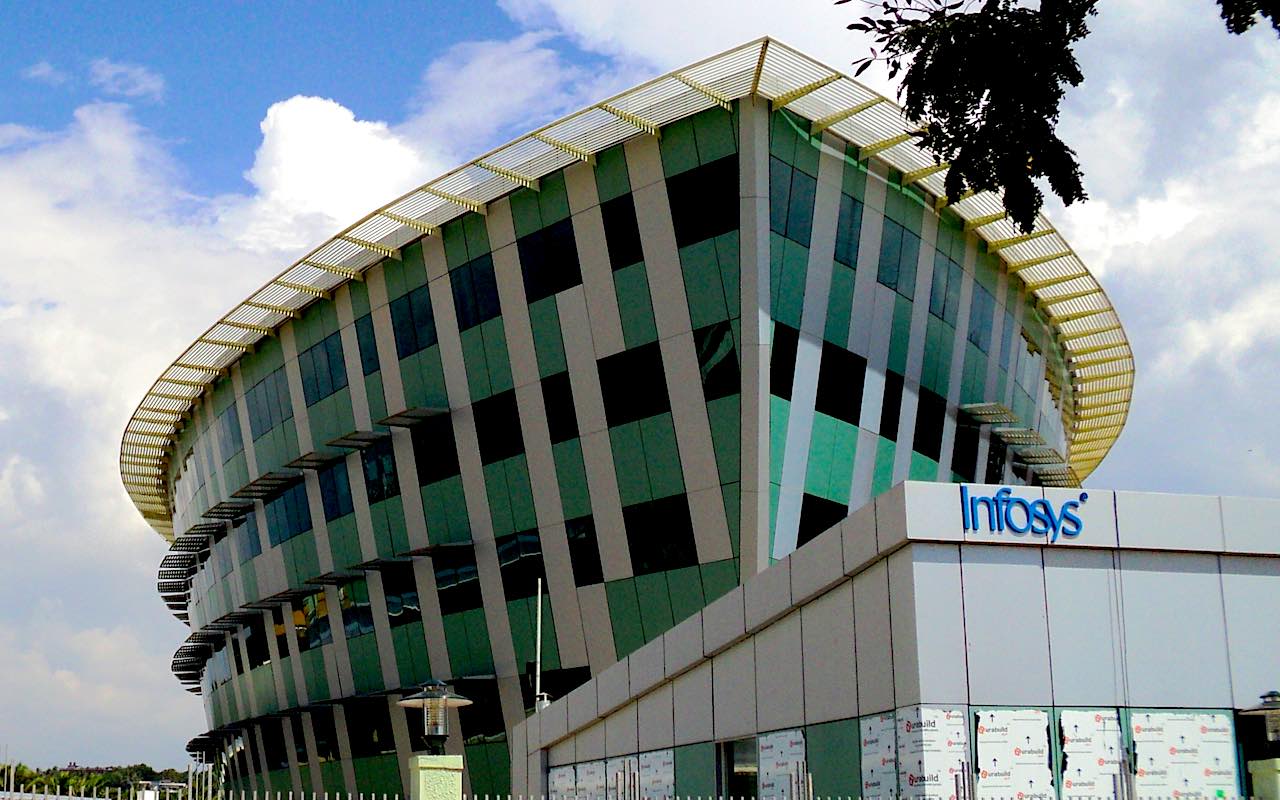
Infosys
- Country: India
- Market value: $47.8 billion
Nearly all of the trade war tit for tat has focused on manufactured products and agricultural goods. Relatively little has focused on services, which is good news for Indian technology outsourcer Infosys (INFY, $11.28).
Indian stocks haven’t performed particularly well this year, as the Indian economy has shown signs of weakness. It got bad enough for the Reserve Bank of India cut interest rates for the fourth time this year in August. The benchmark rate is now at its lowest level in nine years.
If the weakening economy weren’t cause enough for concern, there also is a big regulatory question mark. The government increased its tax surcharge on foreign investors back in July, only to reverse course and lower it a month later.
None of this inspires much confidence in the market, of course. And unfortunately, this kind of governmental uncertainty is a hallmark of many emerging-markets stocks.
Still, Infosys has managed to buck the trend and push higher. The shares are up nearly 20% year-to-date and more than 50% over the past two years.
With the labor force in the United States the tightest it has been in decades, demand for outsourced technology and consulting won’t be slacking anytime soon. Infosys is a good way to play that trend.

Naspers
- Country: South Africa
- Market value: $100.9 billion
We’ve covered China, India and Latin America, but South Africa has one of the best-developed stock markets among emerging economies. The South African economy tends to be dominated by mining and commodity-related businesses, but the single-largest stock in the South African exchange by market value is a technology holding company: Naspers (NPSNY, $46.65).
The biggest reason for Naspers’ large market value relative to the size of the South African market is its large position in China’s Tencent. Incredibly, Naspers’ 31.2% stake in Tencent, at $124 billion, is worth more than Naspers’ entire market value. At today’s prices, when you buy a share of Naspers, you’re essentially getting Tencent at a discount and getting the rest of Naspers’ sprawling portfolio of technology companies – which include online food ordering and delivery marketplace Delivery Hero, Latin American mobile commerce and content platform Movile, and global learning marketplace Udemy – for free.
Not bad!
Naspers isn’t oblivious to the fact that its shares are worth more dead than alive, and the company has been looking for ways to unlock that value. Naspers plans to spin off part of its stake in Tencent, along with some other assets, into a separate company to be named Prosus and traded in Amsterdam.
If you like Tencent, it would seem ridiculous not to like Naspers.

Turkcell
- Country: Turkey
- Market value: $5.1 billion
Turkish telecom Turkcell (TKC, $5.83), our final pick, is admittedly more aggressive than the other emerging-markets stocks on the list. And while it seems insulated from any trade-war issues, it does have other dangers to be aware of before investing.
With all respect to Turkcell’s management team (which by all accounts has a good reputation in the industry), you have to have nerves of steel to buy this stock. Turkey’s political situation has become complicated in recent years, which hasn’t helped investor confidence. Turkish President Recep Tayyip Erdoğan came to public office as an economic reformer but is looking more and more like an authoritarian populist these days. His pressure on the Central Bank of the Republic of Turkey partly explains why the lira has been sliding so aggressively of late, and his decision to buy Russian military hardware over the objections of the United States and NATO raises the threat of sanctions.
Add to this Turkcell’s own quirky history – the company suffered a shareholder dispute that led to the dividend being suspended for five years between 2010 and 2015 – and you can see why shares have floundered. Turkcell’s stock price has declined by nearly two thirds over the past five years.
But beneath the scary headlines, Turkey is one of the most promising long-term investment destinations you’re ever likely to find. It’s strategically important as a bridge between Europe and Asia, it sits next door to the largest trading bloc in the world in the European Union, and it has a large, diverse and entrepreneurial economy. Unlike China, Turkey isn’t large enough to be considered a threat to Western economic dominance, but it is large enough to be taken seriously as an important trading power. And in Turkcell, you can get access to the growing spending power of the Turkish consumer at crisis-caliber prices.
Yes, it’s a scary stock. But as Warren Buffett has repeatedly said, the secret to investing success is being greedy when others are fearful. And for the intrepid investor, Turkcell offers the opportunity to buy a leading mobile service provider in a promising developing market while it’s on sale.
Profit and prosper with the best of Kiplinger's advice on investing, taxes, retirement, personal finance and much more. Delivered daily. Enter your email in the box and click Sign Me Up.

Charles Lewis Sizemore, CFA is the Chief Investment Officer of Sizemore Capital Management LLC, a registered investment advisor based in Dallas, Texas, where he specializes in dividend-focused portfolios and in building alternative allocations with minimal correlation to the stock market.
-
 Dow Adds 1,206 Points to Top 50,000: Stock Market Today
Dow Adds 1,206 Points to Top 50,000: Stock Market TodayThe S&P 500 and Nasdaq also had strong finishes to a volatile week, with beaten-down tech stocks outperforming.
-
 Ask the Tax Editor: Federal Income Tax Deductions
Ask the Tax Editor: Federal Income Tax DeductionsAsk the Editor In this week's Ask the Editor Q&A, Joy Taylor answers questions on federal income tax deductions
-
 States With No-Fault Car Insurance Laws (and How No-Fault Car Insurance Works)
States With No-Fault Car Insurance Laws (and How No-Fault Car Insurance Works)A breakdown of the confusing rules around no-fault car insurance in every state where it exists.
-
 Dow Dives 878 Points on Trump's China Warning: Stock Market Today
Dow Dives 878 Points on Trump's China Warning: Stock Market TodayThe main indexes erased early gains after President Trump said China is becoming "hostile" and threatened to cancel a meeting with President Xi.
-
 Dow Hits New Intraday High: Stock Market Today
Dow Hits New Intraday High: Stock Market TodayValue-hunters with big stakes in a particular component kept one of the main U.S. equity indexes in positive territory.
-
 Stock Market Today: Dow Dives 748 Points as UnitedHealth Sells Off
Stock Market Today: Dow Dives 748 Points as UnitedHealth Sells OffA services-sector contraction and a worse-than-anticipated consumer sentiment reading sent bulls scrambling Friday.
-
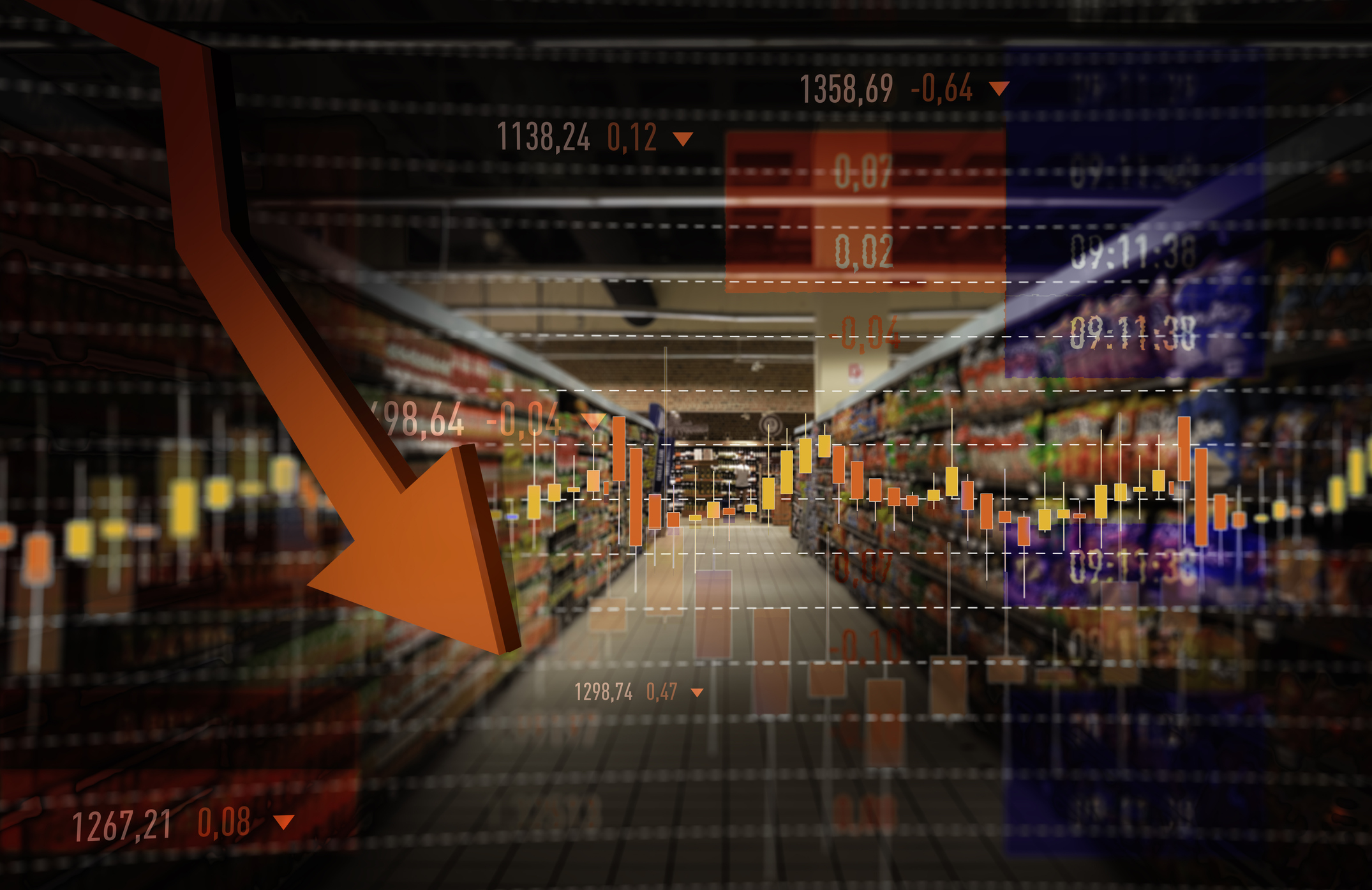 Stock Market Today: Growth Concerns Drag on Stocks
Stock Market Today: Growth Concerns Drag on StocksForward-looking commentary from a major retailer outweighed its backward-looking results as all three major equity indexes retreated on Thursday.
-
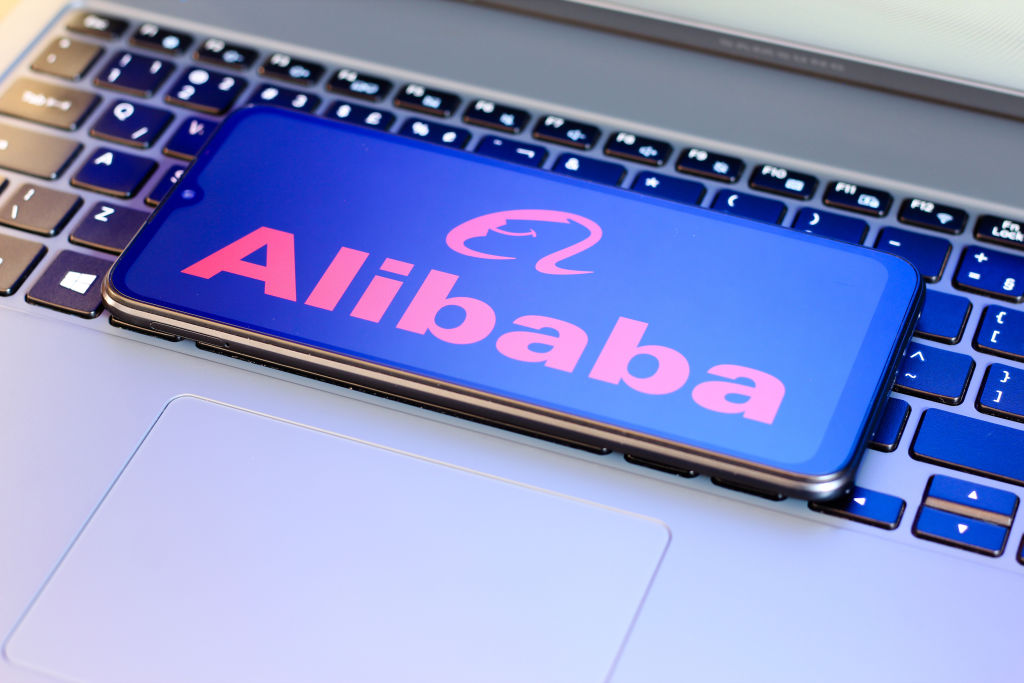 Why Alibaba Stock Is Soaring After Earnings
Why Alibaba Stock Is Soaring After EarningsAlibaba stock is higher Thursday after the China-based e-commerce platform beat expectations for its fourth quarter. Here's what you need to know.
-
 PayPal Stock Falls Despite Earnings Beat, Strong Outlook
PayPal Stock Falls Despite Earnings Beat, Strong OutlookThe payments stock is suffering Tuesday under the weight of high expectations. Here's what you need to know.
-
 The 24 Cheapest Places To Retire in the US
The 24 Cheapest Places To Retire in the USWhen you're trying to balance a fixed income with an enjoyable retirement, the cost of living is a crucial factor to consider. Is your city the best?
-
 Is PayPal Stock Still a Buy After a Revenue Miss?
Is PayPal Stock Still a Buy After a Revenue Miss?PayPal stock is falling Tuesday after the payments giant reported mixed third-quarter results, but most of Wall Street remains bullish.
